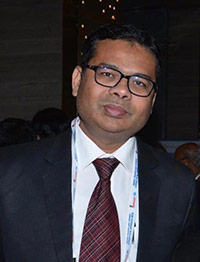All it takes is a wish to donate organs, in order to give years of life to another person. On World Organ Donation Day, Dr. Shyam B. Bansal explains the significance of pledging one's organs in order to help another one see light at the end of the tunnel....
Every year on 13 th August, world organ donation day is celebrated to create awareness about organ donation and encourage people to donate their organs so that the gap between organ demand and supply can be reduced and more patients with organ failure can benefit from these organs. Organ donation is a process whereby individuals agree to donate a healthy organ or tissue to a person with a failed or damaged organ, which is then transplanted. Both, living and deceased can donate. Where's a living person is limited to donate only one kidney, part of liver or a part of pancreas, a deceased individual can donate both kidneys, both lungs, heart, liver, intestine, pancreas and tissues including heart valves, cornea, skin, bone/cartilage, and blood vessels. This is done as per the Transplant Human Organ Act (THOA) 1994, which covers all medico-legal aspects of organ/tissue transplantation and as per which the buying and selling of organs is punishable with both fine and imprisonment.
Throughout the world, there is a gap between the demand and supply of organs. According to the information available on the National Organ and Tissue Transplant Organization (NOTTO) website, each year approximately 2,50,000 people in India require kidney, 80,000 need liver, 50,000 need heart and 1,00,000 need cornea transplants. But in comparison, in the year 2018, hardly 10,000 organ transplants were performed in India. Out of the total, about 80% were kidney transplants, 20% liver transplants and very few (200) heart transplants. The bigger problem is that only 15% of these transplants were from deceased donors despite the fact that approximately 1,50,000 patients die in road traffic accidents each year. In contrast in the USA approximately 40,000 organ transplants are performed each year with a demand of 1,20,000/year, and 80% of these organs come from deceased donors. The rate of organ donation in India is one of the lowest in world at 0.86 per million as compared to 40 per million in Spain and more than 10 per million in most other developed nations. Patients of kidney failure in India who can otherwise be saved and live many more years on dialysis, die because of a lack of the availability of organs. So, while there is a strict criteria for organ donation of those living, deceased donation is open for all, even though there is a reservation about the quality of organs after a certain age. Few centres do not accept organs of that are fro patients above 70 years. For minors, the consent of parents/legal guardian is required before donation. Those diagnosed with active neoplasm with metastasis, Hepatitis B, West –nile virus, encephalitis of unknown origin, disseminated tuberculosis and HIV, among others, are barred from donating organs.
Before taking out organs from a deceased person, confirmation of brain death is mandatory as certified by a team of doctors. Brain death is cessation of function of the brain stem due to irreversible damage when the person is considered dead for all practical purposes, however due to mechanical ventilation, the heart continues to receive oxygenated blood and keeps pumping for some time after brain death, but it does not mean that the person is alive or there are any chances of recovery. But even after one is declared brain dead, there may be barriers to organ donation, such as religious beliefs, lack of awareness, lack of trust in the medical system, and a lack of training of healthcare workers. Although no religion prevents one from organ donation, it is high time that leaders from across religious groups come out in support of the cause of organ donation and educate their people about the same. Also, as a step towards increasing organ donation patients' relatives must be counselled about it inside the hospital itself as soon as intensivists and neurologists declare brain death or even in the case of a cardiac death in which the heart stops functioning.
Donating an organ is the noblest cause as one is quite literally giving a few years of life to the other, and one can volunteer to be an organ donor by expressing a wish in the authorized organ and tissue donation form (Form-7 as per THOA). One may also pledge to donate the organs by signing up with www.notto.nic.in. One may also register as a donor at Mohan foundation or Organ India.


